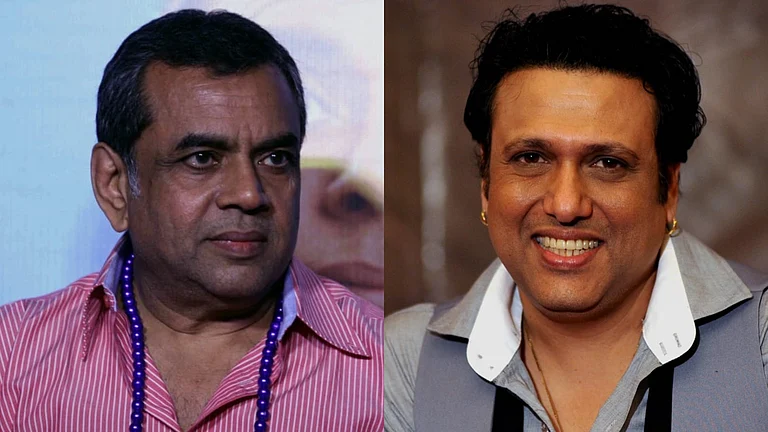Shattering the walls of social prejudices and stigma attached to her, Rajkumari first motivated the 65-member eunuch community of the Gaighat area near Patna, and thereafter the people, to start the school which, she claims, is the first of its kind in India.
Started in 1993, in a small one-room thatched structure built by the eunuchs in the Ashokvan locality on the banks of Ganga, the school has expanded to two-and-half rooms with concrete boundary walls and a small thatched toilet. Initially, as was expected, people of the area were reluctant to send their children to the school, but now, after five years of its not-so-smooth life, the roster tells its own tale. Says Rahul, a teacher: "Initially, I was sceptical about working with them, but my faith has grown seeing their determination and dedication."
Despite tall promises by leaders and NGOs, the school is run entirely on money earned by the eunuchs through singing and dancing. With free tuition, books and meals (khichdi on Saturdays), the school's annual budget comes to roughly Rs 46,000, not a meagre amount for the eunuchs who have a tough time making a living. "Initially, leaders promised to grant government land for the school, but with time, it was forgotten much like their election promises," rues Rajkumari.
At the moment, the school imparts education up to class VII, with one teacher per class. Besides regular teachers who are paid Rs 400 a month, Chumchum Hijra, Mantu Hijra, Sadhna Hijra and Rajkumari also pitch in according to their abilities.
Afflicted with polio, Amit, a class I student from the nearby Punpur district, resides in the school premises with 13 others under the watchful eyes of Rajkumari. The son of a labourer, Amit says: "After my studies, I want to be a doctor." Rasheed, whose father owns a footwear shop, pipes in: "I want to be an engineer and make the school building pucca." Rasheed and Ravi Kumar hold the distinction of being the school's first students to have passed the matriculation exam this year, and are awaiting admission to college. "They are the pride of our school," boasts Rajkumari.
With initial hurdles taken care of, students from far-flung areas have begun to pour in, forcing Rajkumari to engage the services of two cycle-rickshaws, two thelas, and an old ambassador car used occasionally to ferry students. Free of cost. Besides, students get free medical check-ups, a service provided by doctors Rajeshwar Thakur and N.K. Das. "We come here due to Rajkumari's sincerity. She's doing a remarkable job which must be reciprocated and appreciated by society," says Dr Das.
And that's not all. Rajkumari adopts abandoned children to give them a 'literate future'. Some have been married off. Of them, a couple have stayed back to teach at the school. For the moment, all her free time is taken up with nursing three-year-old Mansa and six-year-old Azad, found at garbage sites nearby. But despite financial hardships, the fire in Rajkumari continues to burn bright. Next, she wants to set up a music and dance school. "I plan to open my Kala Prashikshan Kendra on December 2." About resources, she thunders: "Paisa hi sab kuch nahin hota, shiksha zindagi hai jiske bina aadmi adhura hai. (Money isn't everything, education is important, without it man is incomplete)".
So far, she has had no time to rest on her laurels. In the five years since the school was set up, it's been gutted by fire thrice. Each time, the eunuchs led by Rajkumari started again from scratch. Says Mantu Hijra: "Whatever be the circumstances, we'll never lose heart." A conviction that is carrying Rajkumari through walls of hostile attitudes. To help, call (0612-544499).
























